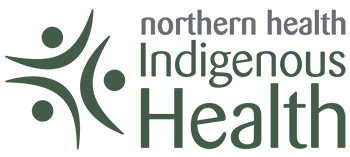Each week, the Indigenous Health department highlights good news stories from the North and from across the country.
Indigenous physicians group receives federal funding to battle racism in health care
Indigenous Services Canada has allocated more than $150,000 to the Indigenous Physicians Association of Canada (IPAC). The funding will support its advocacy work in ensuring Indigenous people have access to safe health care and to improve conditions for Indigenous physicians themselves.
IPAC supports Indigenous physicians and medical students through mentorship programs and act as advocates for change in health care. “This funding will increase our capacity so that we can work with allies who want to better respond to the Truth and Reconciliation Commission’s Calls to Action.”
The association has identified eight priorities that respond to the Truth and Reconciliation Commission’s Calls to Action 23 and 24, which address retention of Indigenous health care providers in Indigenous communities, provide cultural competency training for all health care professionals, and requires that medical and nursing school students in Canada to take a course dealing with Indigenous issues.
To read more about the Indigenous Physician Association of Canada initiatives, visit the Toronto Star website.
Beaverhouse First Nation achieves historic recognition
On May 21, Beaverhouse First Nation leadership announced that the community had achieved formal recognition from the Government of Canada that it is a First Nation under Section 35 of Canada’s Constitution.
Chief Wayne Wabie said, “I have been involved in this fight for most of my life alongside many past leaders and it has been an honour to carry on this legacy and to work with our community to achieve this goal.” The legal process was started in the 1980s by Chief Meaniss and continued with several successive chiefs.
Kim Fullerton, lead legal representative, was instrumental in pursuing Section 35 recognition over the years. He is a longtime advocate for First Nation communities and organizations primarily in land claims against Canada and Ontario.
“This is a significant event because Canada is recognizing a new First Nation in the country, which doesn’t happen very often,” said Fullerton.
Learn more and read the full story from the Windspeaker Website.
‘Deadly aunties’ help keep their community out of harm’s way thanks to Yukon community safety officer program
Elder aunties Joyce and Margaret Douville, who are sisters in their late 60s, are community safety officers for their First Nation, Teslin Tlingit Council (TTC), and are the eyes and ears of their community.
Joyce and Margaret patrol their community for minor safety issues such as making sure children arrive home safe from school as well as checking in on Elders who live alone. The sisters are proud of the nickname “deadly aunties” and say that the community members “think we’re deadly because of our age.”
Jeff Mike, who is Mohawk and the program’s manager, came out of retirement as an RCMP officer to implement the program. He says the program functions as an early warning system that “allows a more holistic approach to dealing with less serious situations and frees up the RCMP to deal with more serious matters.” He adds that because the program has been so successful within the first six months of its inception, he is hoping to hire more officers.
To learn more and watch a video interview of the “deadly aunties,” visit the APTN National News website.

